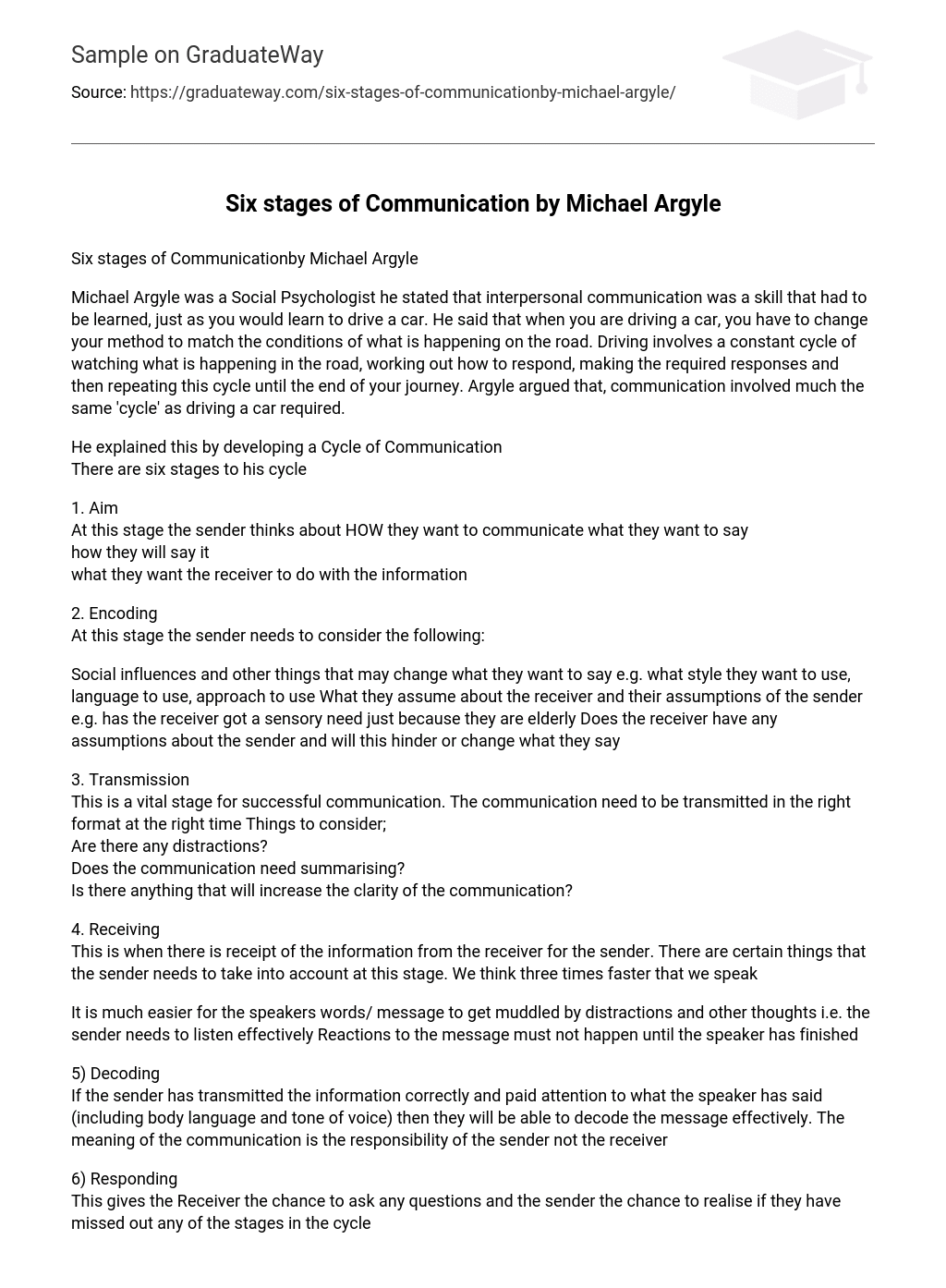Six stages of Communicationby Michael Argyle
Michael Argyle was a Social Psychologist he stated that interpersonal communication was a skill that had to be learned, just as you would learn to drive a car. He said that when you are driving a car, you have to change your method to match the conditions of what is happening on the road. Driving involves a constant cycle of watching what is happening in the road, working out how to respond, making the required responses and then repeating this cycle until the end of your journey. Argyle argued that, communication involved much the same ‘cycle’ as driving a car required.
He explained this by developing a Cycle of Communication
There are six stages to his cycle
1. Aim
At this stage the sender thinks about HOW they want to communicate what they want to say
how they will say it
what they want the receiver to do with the information
2. Encoding
At this stage the sender needs to consider the following:
Social influences and other things that may change what they want to say e.g. what style they want to use, language to use, approach to use What they assume about the receiver and their assumptions of the sender e.g. has the receiver got a sensory need just because they are elderly Does the receiver have any assumptions about the sender and will this hinder or change what they say
3. Transmission
This is a vital stage for successful communication. The communication need to be transmitted in the right format at the right time Things to consider;
Are there any distractions?
Does the communication need summarising?
Is there anything that will increase the clarity of the communication?
4. Receiving
This is when there is receipt of the information from the receiver for the sender. There are certain things that the sender needs to take into account at this stage. We think three times faster that we speak
It is much easier for the speakers words/ message to get muddled by distractions and other thoughts i.e. the sender needs to listen effectively Reactions to the message must not happen until the speaker has finished
5) Decoding
If the sender has transmitted the information correctly and paid attention to what the speaker has said (including body language and tone of voice) then they will be able to decode the message effectively. The meaning of the communication is the responsibility of the sender not the receiver
6) Responding
This gives the Receiver the chance to ask any questions and the sender the chance to realise if they have missed out any of the stages in the cycle





